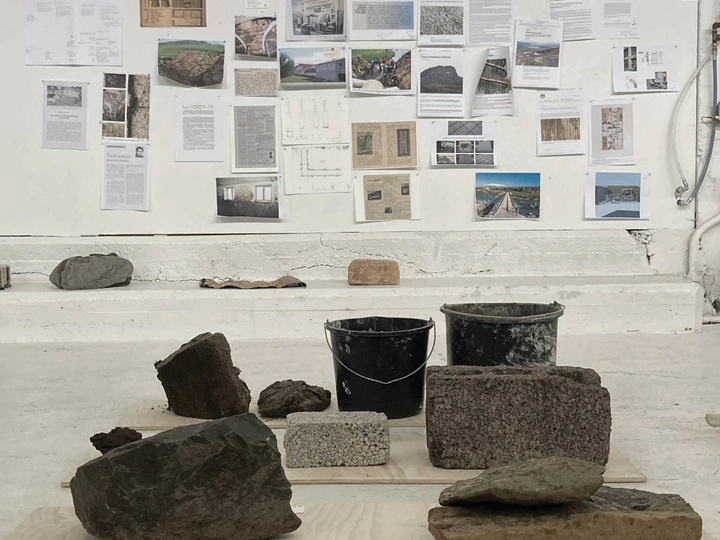Future Matters : Aesthetics of Survivalism

Anna Karlsdóttir
Gísli Hrafn Magnússon
Bjarki Þór Wíum Sveinsson
Guðni Valberg
My name is Gísli Hrafn. I graduated with a degree in Fine Art in 2016, and from the beginning, my artistic practice has focused on materials—specifically, the ability to source and create raw materials myself. This interest led me to architecture, where I recently completed my Master’s degree with a thesis titled Aesthetics of Survivalism. The project, which explores material resilience and resourcefulness, received a local award and has been nominated for the RIBA President’s Medal by my thesis advisor.
Material research has been a central thread throughout my architectural studies and has since evolved into an ongoing collaborative project with Lúdíka and Trípólí. Together, we’re investigating Iceland’s architectural heritage and asking: what does a truly locally sourced building look like in Iceland today? The project draws on our shared curiosity about how our history of survivalism, tradition, and material culture can inform the future of building in Iceland.
This work has opened connections across multiple layers of Icelandic industry, from craftspeople to policymakers, and is gradually developing into a platform for collaboration—where knowledge is shared and new ideas are tested through collective effort.
Future Matters: Reimagining Construction in Iceland
Iceland’s geographic isolation, geopolitical uncertainties, and the looming climate crisis act as urgent triggers for transformation. These challenges, however, also present a unique opportunity: to transition the country’s construction industry toward a more self-sufficient, regenerative, and accountable future.
The island's particularities—its volatile climate, abundant geothermal energy, interconnected population, and sparsely populated land—can become powerful drivers of change. Iceland can serve as both a testbed and a model for how materials and construction methods can be radically rethought for a more sustainable future. Locally sourced and produced materials, recalibrated resource utilization, and robust cross-sector collaboration can lead to a renewed ethos of self-reliance and harmonious coexistence with the land.
Future Matters is a dynamic platform and toolkit designed to catalyze this transition. It combines a repository of local materials and traditional techniques with a practical guide to regulatory challenges and pathways for reform. Emphasizing regenerative material use and cross-sectoral practices, it connects past knowledge with present needs and future possibilities.
The aim is to transform Iceland’s construction industry by reimagining how we build—using what we have, learning from what we had, and planning for what’s to come.